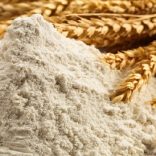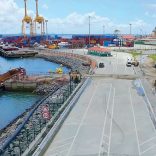Mozambique: CTA board opens way for Massingue to run in internal election - Watch
Tough year ahead for SA / Moz retailers as Massmart stalls

Massmart reported flat annual earnings on Thursday and highlighted the difficulties South African food retailers are likely to face this year as shoppers contend with rising prices, mounting debt and high unemployment.
The retailer, majority owned by Wal-Mart Stores, earns 91% of its revenue in South Africa, with an economy expected to grow by less than 1% this year.
The biggest worry this year is how inflation will affect the lowest income earners, Chief Financial Officer Hans van Lierop told Reuters.
Massmart, which also sells appliances and building materials to wealthier shoppers, supplies staples such as maize and rice in bulk to traders who sell them on to poor urban and rural consumers.
Though retailers absorb some of the cost increases, maize and sugar prices could climb by a double-digit percentage due to a severe drought in southern Africa, said Van Lierop.
Poorer South Africans spend a large part of their income on food and transport, so even when retailers do not pass on price increases they struggle to afford anything but essentials.
Massmart noted a slowdown in general merchandise sales toward the end of 2015 as business confidence sagged and the currency depreciated to new lows.
The rand has declined 20% against the dollar since October, offsetting gains for consumers from lower fuel prices.
“People are travelling less, less often and less far to go to shops,” said Chief Executive Guy Hayward in a presentation to analysts.
Basket sizes are smaller than a year ago, he added.
Rival Shoprite also noted the impact of transport costs on customers when it reported an 8.9% rise in half-year profit on Tuesday.
In some parts, shoppers increasingly prefer informal retailers to stores because it involves less travel, Shoprite Chief Executive Whitey Basson said then.
Low-income shoppers would struggle, Basson said, adding Shoprite could benefit as middle-income customers trade down.
Pick n Pay, a grocer focused on the middle and upper end of the market, on Thursday piloted a project to supply informal shops, called “spazas”.
The trial could be extended to hundreds of independent spaza owners if successful, it said.
Massmart posted diluted headline earnings per share (EPS) of 508.8 cents for 2015, compared with 504.7 cents in 2014.
Headline EPS is South Africa’s main profit gauge and strips out certain one-off items.
Massmart Holdings Limited is a South African firm that owns local brands such as Game, Makro, Builder’s Warehouse and CBW. It is the second-largest distributor of consumer goods in Africa, the largest retailer of general merchandise, liquor and home improvement equipment and wholesaler of basic foods.
As of 31 January 2016, Massmart operated 410 stores in South Africa and 12 other Sub-Saharan countries. In Mozambique Massmart is present thorugh Game, Builder’s Wharehouse, Kangela, CBW and Kawena.












Leave a Reply
Be the First to Comment!
You must be logged in to post a comment.
You must be logged in to post a comment.